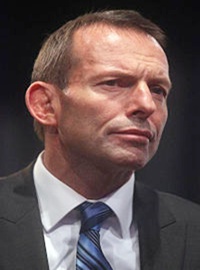Search for MH370 entering ‘new phase’ as hopes of debris recede
28 Apr 2014
Australia's Prime Minister Tony Abbott announced today that the search for the missing Malaysia Airlines flight MH370 is entering a new phase, focusing on a larger underwater area and involving private contractors, in an operation likely to cost A$65 million.
 At the same time he struck a pessimistic note, saying it has been 52 days since the plane disappeared and it is now highly unlikely that any debris will be located on the ocean surface.
At the same time he struck a pessimistic note, saying it has been 52 days since the plane disappeared and it is now highly unlikely that any debris will be located on the ocean surface.
''I regret to say that none of our efforts in the air, on the surface or under the sea have found any wreckage. By this stage, 52 days into the search, most material would have become water-logged and sunk," Abbott told reporters in Canberra.
"With the distances involved, all of the aircraft are operating at close to the limit of sensible and safe operation. Therefore, we are moving from the current phase to a phase which is focused on searching the ocean floor over a much larger area."
The Boeing 777, which was carrying 239 people, mostly Chinese but including six Australians and about the same number of Indians, vanished on 8 March (See: Malaysia Airlines plane with 239 vanishes over South China Sea).
Since then a massive multinational aerial and sea search effort has been undertaken.
Abbott said that with an end to debris-spotting missions on the surface and from the air, sonar technology and contractors will be brought in to aid the expanded underwater search.
So far the unmanned submersible Bluefin-21 has scanned 400 sq km of ocean floor without finding any trace of the missing plane (See: Robotic submarine to search for MH:370).
"While the search will be moving to a new phase in coming weeks, it certainly is not ending," Abbott said. "The Bluefin-21 submersible will continue in operation. What we are doing though is looking to an intensified underwater search involving different technology."
Retired Australian defence chief Angus Houston, who is coordinating the search for MH370, said even if everything went perfectly it would take a minimum of eight months to examine the expanded search zone. But the Air Chief Marshal added that he was confident authorities are looking in the right area.
"It will take time," he said. "I'd invite you all to just have a look at the French experience with their flight 447 - it took them two years to find the final resting place of that aircraft.
"We are getting into a very challenging task; as the prime minister said, probably the most demanding task in search terms that has ever been mounted to look for a lost aircraft."
The Prime Minister said the search's new phase will cost "in the order of $60 million".
"Up until now, every nation has been bearing its own costs, and in the case of Australia, we have been essentially using Australian military assets, assets we would be paying for anyway," he said.
"No-one should underestimate the degree of responsibility that Australia has here, because this has happened in our search and rescue zone, and there were, after all, six Australia citizens and one Australian resident on that aircraft.''



















